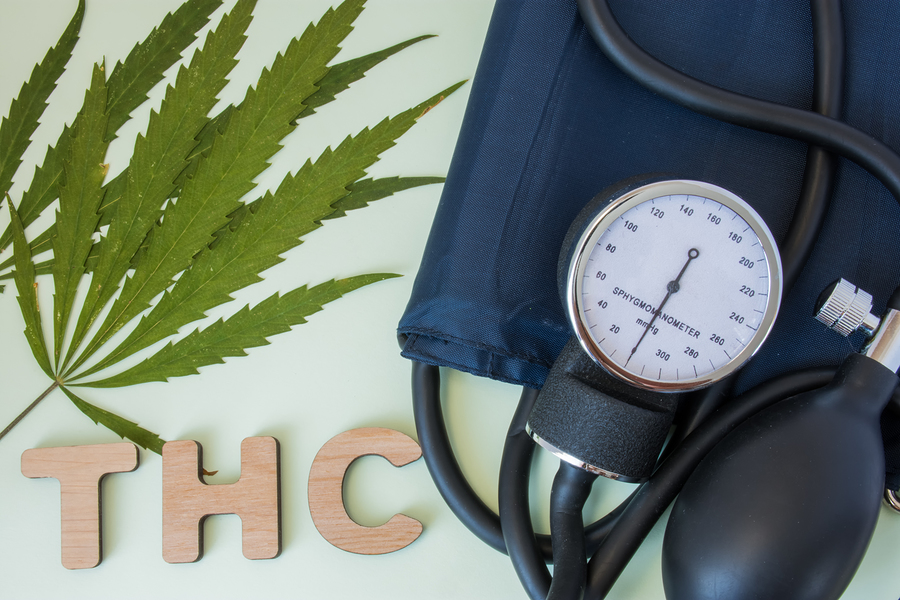To protect their interests, of course.
Texas’ medical marijuana dispensaries entered into this year’s legislative session with a two-prong strategy to expand: to loosen the state’s rules on their industry that has made the program largely inaccessible to those who need it and to eliminate the competition, consumable hemp, which has been allowed to proliferate unregulated, cannibalizing users and profits.
The medical marijuana industry, also known as the Compassionate Use Program, notched victories on both fronts with state lawmakers, but, on the latter, failed to win over the man who has the ultimate say — Gov. Greg Abbott.
Now that the governor has vetoed a bill that would have criminalized the sale and possession of hemp-derived THC, medical marijuana dispensaries fear they can’t continue to operate if Texas doesn’t agree to heavily regulate the hemp industry or at least, give the medical program the same freedom.
“I was surprised, just extremely surprised and borderline in disbelief when I heard about the veto,” said Nico Richardson, CEO of Texas Original, a Central Texas medical marijuana company. “The expansion [to the medical marijuana program] was meant to include the hemp restrictions.”
[…]
Abbott urged lawmakers in his veto to consider regulating consumable hemp similarly to alcohol by recommending barring the sale and marketing of THC products to minors, requiring testing throughout the production and manufacturing process, allowing local governments to prohibit stores from selling THC products, and providing law enforcement with additional funding to enforce the restrictions.
Medical marijuana leaders also want regulations to go a step further by banning a significant part of the smokeable hemp industry, products that contain the synthetic THC known as delta-8. The products are cheap to manufacture and have a longer shelf life because they contain a small amount of natural hemp. Delta-9 THC, like marijuana, on the other hand, is derived straight from the plant and is more time-consuming and expensive to produce since it requires a grower’s expertise.
“Our products are comparable in price to the delta-9 THC products. What we can’t compete with is these delta-8 products because we can’t manufacture chemicals, and frankly, we wouldn’t want to because it’s not responsible,” Richardson said.
The Texas Hemp Coalition, the industry’s nonprofit advocacy arm that monitors market changes, supports regulations on delta-8. Aaron Owens, a member of the hemp industry, said he supports an outright ban because it would allow hemp growers to have more control over the market, rather than laboratories.
“The number one problem is these synthetics. You take those away and 95% of the industry disappears because this stuff isn’t coming from the farmer,” said Owens, a hemp farmer and founder of Austin-based Tejas Tonic, a hemp beverage company. “A ban on synthetics would … go back to the old-fashioned hemp-and-cannabis way.”
Members of the hemp industry said they would be willing to accept many of the regulations that Abbott proposed in his veto. They would also agree with implementing an age restriction of 21 to purchase THC-containing hemp products and to bar the sale within 1,000 feet of a school or church.
“I think by bringing those standards up for hemp, I think it will help us coexist,” Singletary said. “I want to make it really clear that we are not anti-hemp, but we do feel like the hemp industry needs to follow some really clear, defined rules.”
This article was written before the expanded agenda was announced. The main effect there will be that the more time spent on those other items, which includes important things like flood alarms and disaster preparation, ridiculous things like banning local governments from hiring lobbyists, and entirely optional things like redistricting, the less that can be spent on figuring out the path forward for THC and Compassionate Use.
There are two things I will note here. One is that this story only quotes from people who basically agree with the medical marijuana position, which is pretty strict on THC. Even saying that members of the hemp industry would support “many” of Abbott’s proposed regulations leaves a lot of room for disagreement, and that’s before we hear from anyone representing the THC retailers or their customers. I kind of suspect that they would prefer a lighter touch. All of this will take some time to negotiate, and it is likely someone will come away unhappy.
And two, there’s still the Dan Patrick factor. Will Patrick play along and just try to get the best half-a-loaf he can get, or will he dig in his heels and say no, it’s a full ban or I salt the earth and let everyone stew in the current chaos until 2027 when I can try again (if I get re-elected)? I don’t know, but how he reacts will certainly have an effect. We’ll know more in a week.

